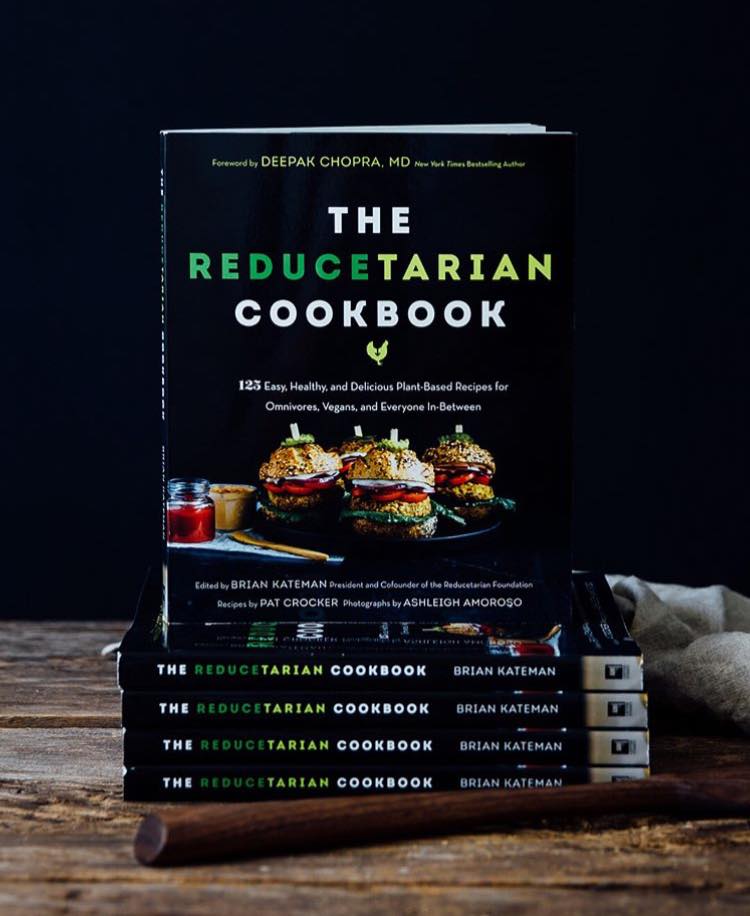Over the last five years, there have been big developments and changes in the way we look at our diets. Veganism, once viewed as a restrictive and extreme way of eating (and living), is now an incredibly popular “diet” and lifestyle choice, with approximately 3.5 million people in the UK now living and breathing it. It’s not surprising that this movement is taking a grip when more and more studies are linking excessive processed meat consumption to poor health and even some serious, life-threatening conditions like cardiovascular disease. The spotlight has also been shone on the mass production of meat and the ethical failings of a lot of producers and manufacturers, not to mention the environmental impact of the meat industry. With a lot of fingers being pointed in many different directions and a lot of information to take in, it can make it tricky for people to decide where they stand. Could there be a middle ground, though, a best-of-both-worlds scenario that allows you to be more conscious of what you are eating and why but without being too extreme or putting yourself and your lifestyle choices into a pigeon hole? Enter the Reducetarian Movement.
Founded by Brian Kateman, this Reducetarian Movement aims to encourage people to eat more mindfully and reduce the amount of animal products they consume. There are no set amounts or “rules”, you do what works for you, just being more aware of what you are consuming and how that might impact the environment and your health. We sat down with Brian to get some more information on this new movement…
What is a reducetarian?
A reducetarian describes a person who is mindfully eating less meat – red meat, poultry, and seafood, as well as less dairy and fewer eggs – regardless of the degree of reduction or motivation for cutting back. They play around with Meatless Mondays, veggie-heavy lunches, smaller protein portions, vegetarianism, and veganism to see what works best for them. This concept is appealing because not everyone is willing or able to follow an “all-or-nothing” diet and terms like “lazy vegan” and “cheating vegetarian” are static and self-defeating. Meat consumption, like any behaviour, is a spectrum, and often changes gradually, not overnight; in other words, every plant-based meal is one worth celebrating. In the words of Deepak Chopra, “It focuses on progress, not on perfection, and will help you discover the small, but significant lifestyle changes that activate the body’s innate ability to thrive.” However, reducetarianism is inclusive of vegans, vegetarians, and anyone else who reduces the number of animal products in their diet.
Why should someone adopt a reducetarian lifestyle?
With less meat and more fruits, vegetables, whole grains, and plant-based proteins such as beans and lentils, people who eat fewer animal products live longer and healthier lives. For example, a 2016 study found that transitioning toward more plant-based diets that are in line with standard dietary guidelines could reduce global mortality by 6–10%. This is because eating fewer animal products reduces the prevalence of non-communicable diseases (such as heart disease, stroke, diabetes, and certain kinds of cancer) associated with high body weight and unhealthy diets.
What motivated you to publish The Reducetarian Cookbook?
Despite their merits, most people don’t choose food based on philosophical musings or highbrow semantics – they choose food based on price, taste, and convenience. The research supports this claim, but I also know it to be true from personal experience. I grew up eating meat and potatoes with my middle-class family in the “forgotten borough” of Staten Island, New York. For dinner, we rotated between “meals” like chicken nuggets, spaghetti and meatballs, and hamburgers. I don’t think my parents and I ever encountered “quinoa,” and if we had, we certainly didn’t know how to pronounce it. So I wanted to publish the book I wish my parents and I had while I was growing up. Perhaps then I would have eaten fruits and vegetables on occasion! That’s why The Reducetarian Cookbook is educational without being preachy and contains healthy vegan recipes that—for the most part—are inexpensive, delicious, and easy.
You’ll also notice along the way that many of the recipes are designed to tackle a “carnivore moment,” bringing out similar flavours of some of my favourite meaty meals in plant-based form—like Cauliflower Steak instead of beef steak, for example. Other recipes rely on more traditional “swaps,” such as a Rice and Bean Burrito instead of a Chicken Burrito, or a Veggie Curry instead of a Lamb Curry. These are the recipes that would have prevented me from “falling off the plant-based wagon,” as they say.
Do you have a favourite recipe?
It’s impossible for me to choose just one, so let me give you a sense of a typical day in the kitchen. For breakfast, I routinely make a Berry Smoothie or Cherry Pecan Oatmeal (unless it’s the weekend, in which I may upgrade to Apple Walnut Pancakes or French Toast) since they are super quick to prepare and energizing; for lunch, I love to prepare Rice and Bean Burritos or Sweet Potato Enchiladas; as a snack, I’m a total sucker for a handful of Avocado Fries, some Roasted Red Pepper Hummus with carrots, or a bit of the Kale Salad with Pear and Walnuts; and for dinner, my staples are the Veggie Fried Rice and the Two Bean Chili, but for date night I aim to impress with Cauliflower Steaks or Veggie Pot Pies. Oh, and when I’m in the mood to indulge, the Apple Crisp with French Vanilla Ice Cream is a bowl full of heaven. And I swear the Asian Hot, Sweet-Sour Noodle Soup has sore throat healing powers.
Order your copy of The Reducetarian Cookbook here.















